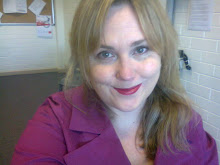
“They don’t make love affairs like yours any more, Dad”
“Oh no, that’s an interesting observation. Why not?”
“Most women of my generation would have left you years ago.”
At the centre of The White Woman on the Green Bicycle by Monique Roffey are a glamour couple, Sabine and George Harwood. They are a cocktails-on-the-terrace type and have been married fifty years. The novel examines the glue that holds such a couple together, depite infidelity and expreme differences in world view.
"Your mother filled up the frame. I couldn't see anyone else but her, no one around or past her."
"Did that ever wear off?"
"No it got worse"
"How?"
"Well then love comes. You fancy lots of other people. But the heart is small and fussy: it knows exactly who it wants."
Sabine and George are expats living a comfortable life in Trinidad before during and after Independence. Sabine is painfully aware that this comfort has been bought through the injustice of a racially segregated society, whereas George is infatuated with both the exoticism of his tropical life and the privileges it bestows upon him. The background is fascinating and the reader feels this pull between tropical exoticism and justice in reading the novel.
The structure of the novel is interesting. The first half of the novel is written in the third person. Sabine and George are elderly and a little cranky with each other. George finds a bundle of letters that Sabine has written to Eric Williams, a former Prime Minister. These letters remind George of their past together and he tries to take up the cause of Talbot, as a form of atonement to the island and to Sabine. It ends sadly.
The second half of the novel is written in the first person from Sabine's point of view, beginning with their arrival as a besotted young couple in 1956. Sabine discovers the country on her green Raleigh bicycle, becoming a figure of fun because it is ludicrous in this society that a privileged white woman should ride a bicycle.
"I tell dem i go fine a job with the white lady on de green bicycle...You is famus, Miss."
The bicycle becomes an emblem of Sabine's youth, independence and naivete and eventually, of course, she stops riding it. Thus the bicycle is imbued with a sense of loss. As an old man, George renovates the bicycle for Sabine, but perhaps this is too late...
 The Selected Works of T.S. Spivet is physically a beautiful book. Wide silky pages are home to a central narrative, drawings, maps and sub narratives. T.S of the title is a twelve year old boy genius who loves maps. He maps concepts - such as the construction of longing by McDonald's- as well as his physical surroundings. He lives on a ranch in Montana with his scientist mother Dr Clair and his archetypal rancher father and is dealing with the grief of the loss of his younger brother.
The Selected Works of T.S. Spivet is physically a beautiful book. Wide silky pages are home to a central narrative, drawings, maps and sub narratives. T.S of the title is a twelve year old boy genius who loves maps. He maps concepts - such as the construction of longing by McDonald's- as well as his physical surroundings. He lives on a ranch in Montana with his scientist mother Dr Clair and his archetypal rancher father and is dealing with the grief of the loss of his younger brother. 

 No not Stendahl, but two other red and black books - one about spies and one about vampires! I have been craving an old style thriller, so it was great to stumble across
No not Stendahl, but two other red and black books - one about spies and one about vampires! I have been craving an old style thriller, so it was great to stumble across 




